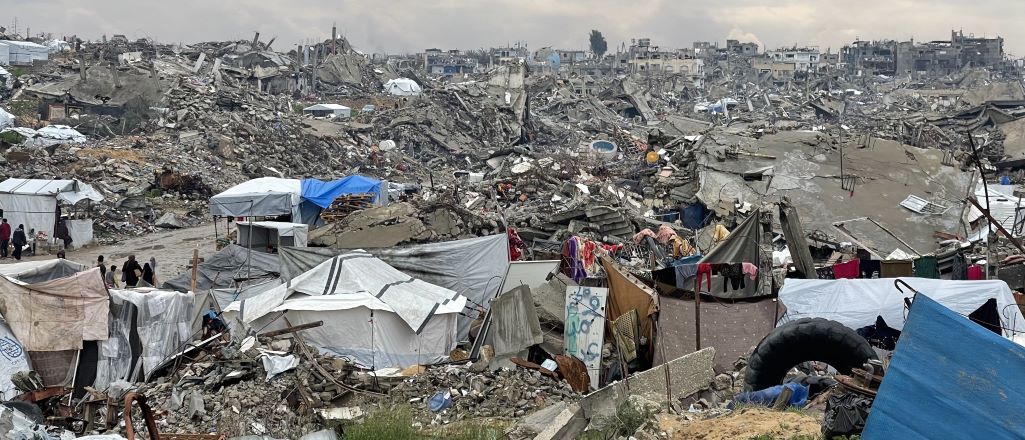Washington, DC., 2 September 2025 ——
In the wake of decades of protracted conflict, displacement, and repeated violations of international law, the time has come for the United Nations General Assembly (UNGA) to take decisive action and recognize the State of Palestine, and hold Israel accountable for its actions in the Gaza Strip and the West Bank by imposing sanctions on the Israeli government. However, sanctions should not be interpreted as an act of punishment toward the Israeli people, but as a necessary step to uphold the rule of international law and the principles of justice and accountability.
A Matter of Justice and Equality
Recognition of Palestinian Statehood is not simply a symbolic gesture; it is a legal and moral imperative rooted in the UN Charter, the right to self-determination, and decades of resolutions affirming sovereignty. Over 130 countries have already recognized the State of Palestine, yet formal recognition by the UNGA would serve as a powerful collective affirmation that Palestinians are entitled to the same rights and nationhood as any other people.
Statehood offers Palestine the legal and political standing needed to assert its rights in international forums and to hold violators accountable. Without such recognition, Palestinians remain trapped in a legal gray zone, subject to occupation, dispossession, and statelessness, but denied full participation in the global system designed to protect such rights.
A Nonviolent Means of Enforcing International Law
Sanctions are not inherently punitive. They are a peaceful and strategic tool used by the international community to discourage unlawful behavior and incentivize compliance with international norms. When used responsibly, sanctions can serve as a deterrent against further violations and a pathway toward dialogue, negotiation, and peace.
For decades, Israel’s government has pursued policies that directly contravene international humanitarian law. Israel has expanded settlements in the occupied West Bank, deemed illegal under the Fourth Geneva Convention. The blockade of Gaza, resulting in what UN experts describe as collective punishment of civilians, and the deliberate starvation of millions of Gazans. Israel’s use of disproportionate military force has led to high civilian casualties in both Gaza and the West Bank; further evidence of a lack of respect for international law. To this point, the Israeli government has denied basic civil and political rights to millions of Palestinians.
Despite repeated UN resolutions condemning these actions, there has been little accountability. The absence of consequences has emboldened further violations and perpetuated a cycle of violence and impunity. Sanctions, targeted and legally grounded, would send a clear message: international law is not optional.
Distinguishing the Government from the People
It is vital to emphasize that sanctions would not be aimed at the Israeli people. In fact, many Israeli citizens and civil society groups actively oppose the occupation and advocate for a just peace. Sanctions should target governmental policies and institutions responsible for violations – such as military supply chains, settler organizations, or state subsidies to illegal settlements, while minimizing harm to the civilian population.
Similarly, recognition of Palestine does not delegitimize Israel, but rather seeks to place both peoples on equal footing, enabling a future where a negotiated two-state solution becomes viable.
Upholding the Credibility of the United Nations
For the UN to maintain its credibility as a guardian of peace and justice, it must act consistently and impartially. Selective enforcement of international law undermines trust in the UN system and fuels narratives of double standards, particularly in the Global South.
Recognizing Palestine and sanctioning Israel for clear and ongoing violations are not radical acts; they are consistent with the UN’s mandate and values. To do otherwise is to normalize occupation, entrench apartheid-like systems, and abandon millions to a future of statelessness and suffering.
The path to a just and lasting peace in Israel-Palestine lies not in impunity, but in accountability. By recognizing the State of Palestine and imposing sanctions on the Israeli government for its violations of international law, the UN General Assembly would reaffirm its commitment to justice, equality, and the rules-based international order.
This is not about taking sides; it is about upholding universal principles. Peace cannot be built on the foundations of inequality and injustice. Peace must be grounded in mutual recognition, human rights, and the rule of law.
Photo Credit: Ruins of Beit Lehia, Gaza Strip, after Israeli bombardments on 23 February 2025. – Images of war 23-25 from Gaza by Jaber Badwen. Licensed under CC BY-SA 4.0

